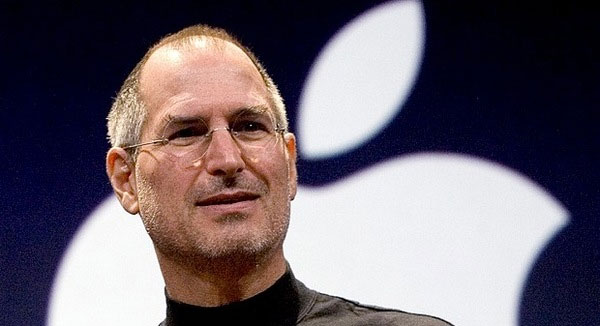Steve Jobs and the journey to find the power of intuition
During his trip to India, Steve Jobs was aware of the power of intuition.

Featured content:
- At the age of 19, Steve Jobs had a trip to India with the aim of finding the supreme being so that they could give him wisdom.
- And here, Jobs began to realize that the power of intuition is not from the supreme being, but from the experience of the deprivation in poor Indian villages.
Bill Gates once rated Jobs as a guy who has no one of the smallest concepts in software design and is just a good seller. However, Gates admits that Steve Jobs possesses an innate intuition and aesthetic appeal.
However, the intuition that Jobs acquired comes entirely from searching and practicing. At the age of 19, while working at the Atari electronics company, Jobs earned a lot of money here and wanted to make a long pilgrimage to find enlightenment.
Jobs's passion for the Eastern spiritual world, Buddhist Zen or the search for a path to enlightenment is not merely a stop at the fleeting glances of a nineteen-year-old. Throughout his life, he has sought and pursued a lot of basic precepts in Eastern culture such as emphasizing intellectual perfection and intuition that is intuitively focused on thinking.
It was this that inspired him to search for a supreme being who would pass him wisdom. And the first land he sought was a pilgrimage to India.
People in rural India do not use their minds as Europeans do, but instead use intuition. And their intuition is much more developed than the rest of the world.
For Jobs, intuition is something powerful, more powerful than intellect. It is a factor that has a great impact on his work.
The thoughts based on the rational mind of the Western people are not the innate characteristics of humanity. It is cultivated and summarized over time. It can be said that reason is the great achievement of Western culture.
In Indian villages, people here never learn to use reason. They learn other things. However, the things they study in some ways will be very valuable but in some other ways it is not. It is the power of intuition and wisdom gained from experiences.
When he returned after 7 months wandering around Indian villages, Jobs began to notice the difference in the people of the West as well as their ability to contain rational thoughts. And he said that if you sit and watch, you will see how our brain works non-stop.
If we try to control it, it just makes things worse. But over time, our brain will get used to that situation and become more calm. You can hear the movement of the smallest things, the quietest sounds, and that's when our intuition starts to wake up.
The brain gradually slows down and you can see time as being extended for the same moment. Thereby, you will feel more things than before. It is a rule, you have to practice it to be able to possess the power of intuition.
This also explains part of the hidden side of the character of Steve Jobs. He could be grumpy, grumpy, mocked by people with poor performance. As well as a lack of restraint or patience over the people Jobs doesn't respect. Jobs's way of doing things may be cruel, but most of his test passers do more than they have.
Steve Jobs did not find enlightenment. Instead, he realized and possessed intuition from the poor experiences of poor villages in India. As a result, Jobs can decide many things simply and quickly like a click. It helps him to say no to many things so he can focus his attention on some really important things. And at Apple is where Steve Jobs inherits the genetic code.
You should read it
- ★ Compared to the 'glove' of the presentation of 2 technology village kings
- ★ Steve Jobs kept Bill Gates's letter at the end of his life
- ★ 11 ways Steve Jobs changed Apple
- ★ [Infographic] Bill Gates started hacking and founding Microsoft, how did he become the richest person in the world?
- ★ Bill Gates is using Android, not Windows Mobile or iPhone, why?